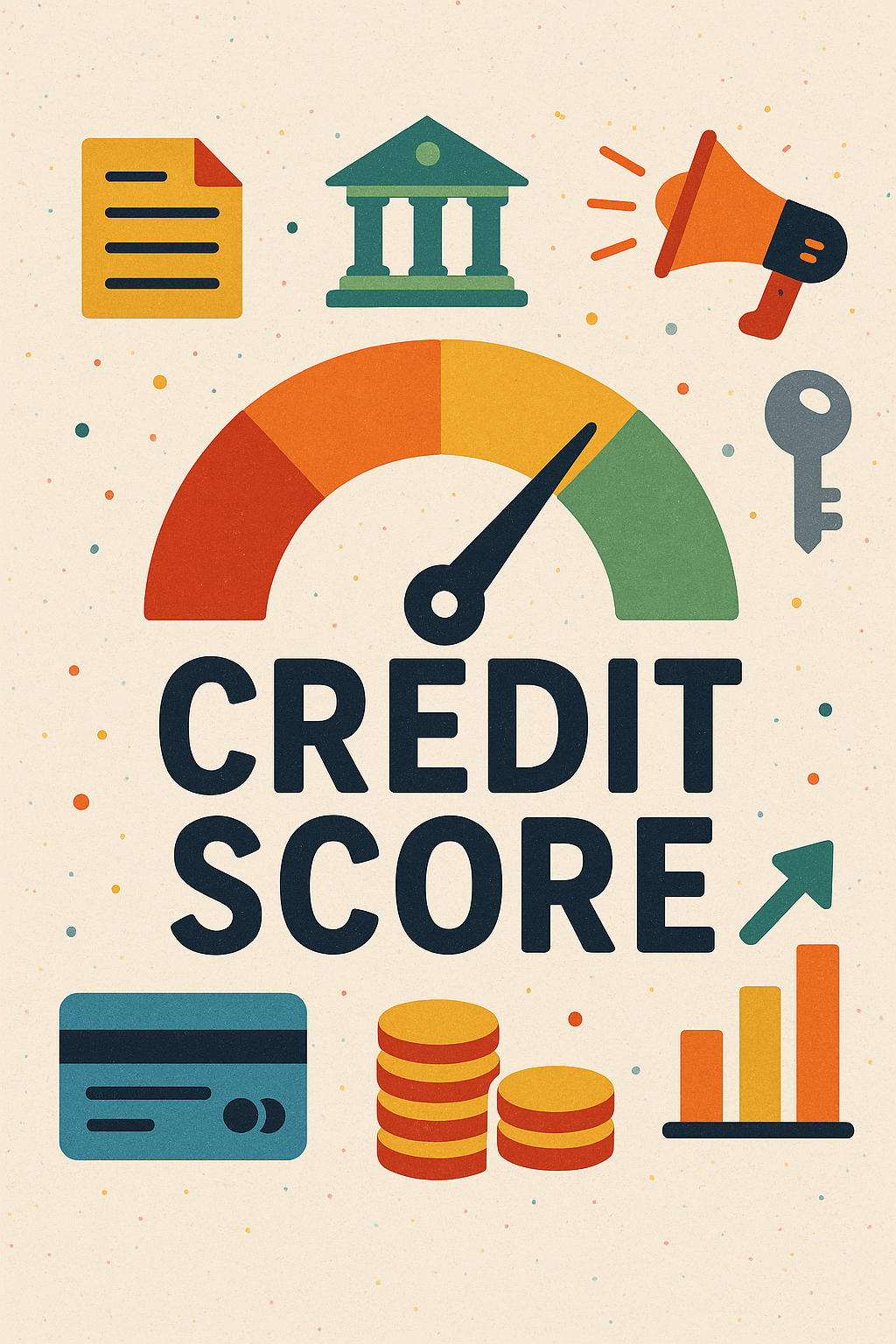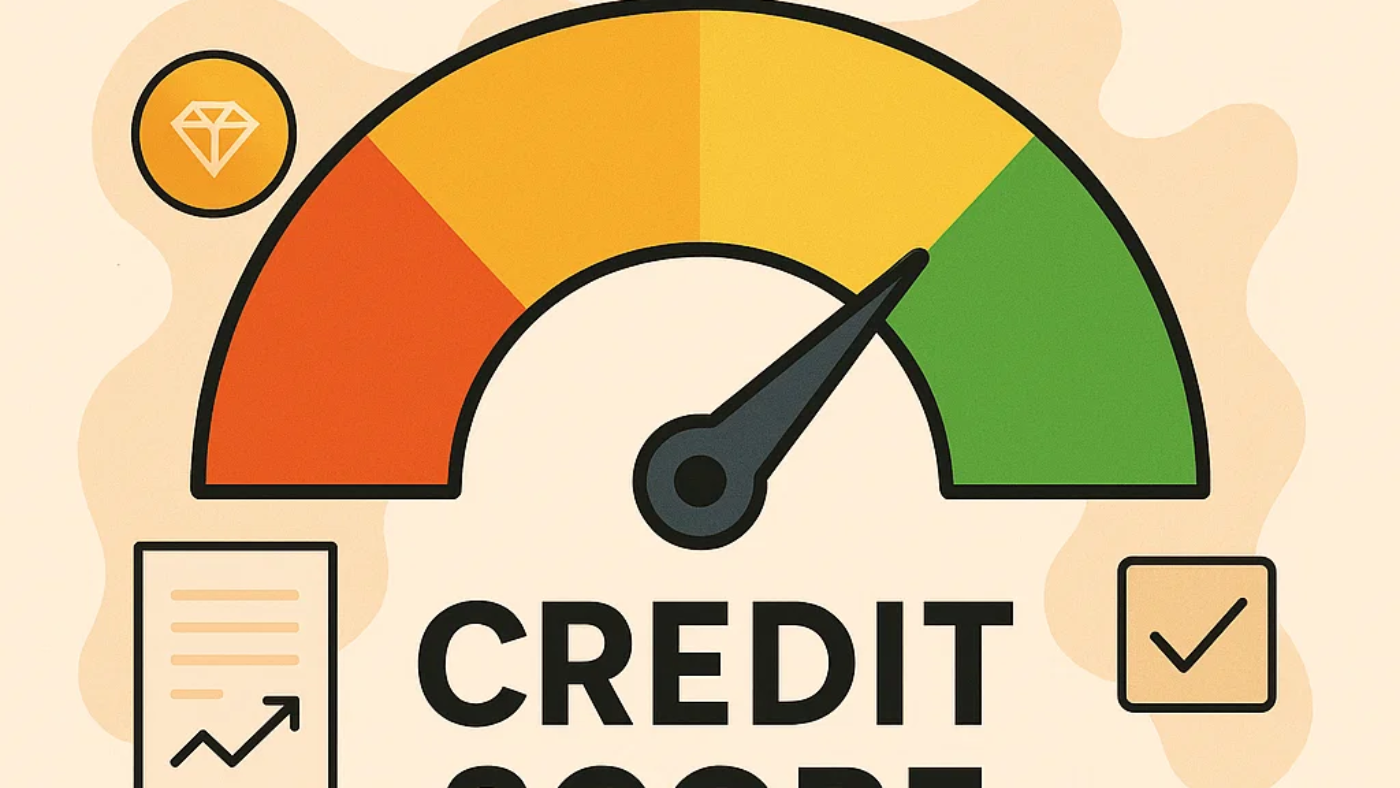Introduction: Your Silent Financial Shadow
Picture this:
You walk into a bank to apply for a home loan. Before you even speak, the banker checks a number—a three-digit code that tells your entire financial story.
Your credit score.
It doesn’t shout. It doesn’t warn. But it speaks louder than words when you need a loan, credit card, or even a rental apartment.
The problem? No one taught you how to read this story—or rewrite it.
Today, we pull back the curtain.

Chapter 1: What Your Credit Score Is Saying
Your credit score (usually 300–900) is like a financial report card. Here’s how lenders “hear” it:
Credit Score | What It Says About You | Loan Impact |
750+ 💎 | “I’m responsible—low risk!” | Lowest interest rates, fast approvals |
600–749 😐 | “I’m okay… but could improve.” | Higher rates, stricter terms |
Below 600 ⚠️ | “I need financial first aid.” | Rejections or predatory loans |
Real-Life Example:
- Same loan, different scores:
- ₹30L home loan @ 8% (Score: 780) = ₹2.4L saved vs.
- ₹30L home loan @ 10% (Score: 650) over 20 years.
That is the power of just 130 points.
Chapter 2: The 5 Secrets No One Told You
- Your Credit Score Is Not Just About Loans
It affects:
- Renting a home (Landlords check it).
- Mobile plans (Postpaid connections).
- Job offers (Some companies verify financial health).
- Small Mistakes Have Big Consequences
- A single missed EMI can drop your score by 50–100 points.
- Maxing out credit cards (even if repaid) screams “cash-strapped.”
- Checking Your Score ≠ Lowering It
- Myth: “Checking my score hurts it.”
- Truth: Checking your own report is a “soft inquiry” (no impact).
- Old Debts Don’t Just Vanish
- That forgotten ₹5,000 phone bill from 2018? Still haunting your report.
- Fix: Clear “zombie debts” or dispute errors.
- You Can Build Credit Without Debt
- Building credit without debt is smart! Use a secured credit card, backed by your own Fixed Deposit. This way, you establish a strong credit history by making timely payments, with your savings as collateral.
- For instance, IDFC FIRST Bank’s FD-backed credit cards like the WOW! or EARN cards let young people responsibly build a good credit score, opening doors to future financial opportunities without taking on risky debt.
Chapter 3: Rewrite Your Story
The 30-Day Credit Rescue Plan
Want to boost your credit score significantly in just six months? Here’s how to do it with discipline.
1) Set up EMI auto-debits for all your credit payments; this ensures you never miss a due date, potentially adding 20-50 points to your score.
2) Always keep your credit utilization below 30%—meaning if you have a ₹10,000 credit limit, try to spend no more than ₹3,000. This alone can give you a 30-point bump.
3) Don’t close old credit cards, as a longer credit history positively impacts your score, usually by around 15 points.
4) Consider mixing credit types, like having both a credit card and a loan, which can add 10 points if managed responsibly.
5) Dispute any errors in your CIBIL report to remove false negatives that might be dragging your score down.
Follow these steps consistently, and you could see your credit score improve by over 100 points!
Chapter 4: The Ultimate Credit Hack
Think Like a Lender
Banks do not just want repayments—they want predictability.
Do this:
- Be boringly consistent (same job, address, on-time payments).
- Avoid sudden credit applications (multiple inquiries = red flag).
Epilogue
Your credit score is far more than just a number on a report; it’s a powerful reflection of your financial reliability and a critical tool that shapes your future opportunities. Think of it as:
- Your ticket to homeownership: A strong credit score can unlock the doors to your dream home by qualifying you for a mortgage and securing you the most favourable interest rates, saving you substantial money over the loan’s lifetime.
- Your key to lower car loan rates: When it is time to buy a car, a good credit score means lenders see you as less of a risk, translating directly into lower interest rates on your car loan. This can save you thousands of rupees and make your monthly payments much more manageable.
- Your financial reputation: In essence, your credit score is your financial resume. It tells potential lenders, landlords, and even some employers that you are responsible and trustworthy. A good score builds a robust financial reputation, making it easier to access credit when you need it and at terms that benefit you.
The good news? It is never too late to start a new chapter and improve your financial standing. Whether you are just beginning your credit journey or looking to repair past missteps, every positive action you take from today onwards contributes to a stronger financial future and increased opportunities.
We help you:
- Check your score for free (no hidden terms).
- Fix errors in your credit report.
- Build a plan to reach 750+.
📞 Connect with us today to start your credit comeback story!
🔍 FAQs
- How can I quickly improve my credit score?
Pay EMIs on time, keep your credit card usage below 30% of your limit, and clear old debts. - Does checking my credit score reduce it?
No, checking your own credit score is a soft inquiry and does not affect your score. - Why did my credit score drop suddenly?
Common reasons include missed EMIs, high credit card usage, or errors in your credit report. - Can I get a loan with a low credit score?
Yes, but you may face higher interest rates or stricter loan terms. - Is it good to close old credit cards?
No, keeping old credit cards open helps maintain a longer credit history, which boosts your score.


Add a Comment